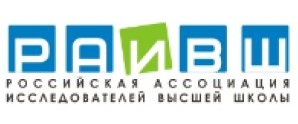The Birth and Revival of Universities
.jpg) |  |  |
The 18-19-20 October the III International Conference of the Russian Association of Higher Education Researchers took place at the HSE. Dear colleagues, we would like to thank all the participants. Thanks to all of you we managed to make our Conference interesting and useful.
The special theme of the conference was “The Birth and Revival of Universities”. The Conference was devoted to the 20th anniversary of the National Research University Higher School of Economics, and the New Economic School.
Over the past decades, the world has seen a large-scale movement towards the establishment of new universities and renovation of old ones through mergers, acquisitions or radical re-organization and innovative reform. Processes to establish “new universities” differ in various countries, with particular specifics determined by the economic, political and cultural settings. However, it is hardly doubtful that these universities have always been – and currently are – established in response to the existing needs for economic, technological and cultural change. How are these needs defined and expressed today? What are the overall expectations related to the newly established universities, and how are their missions and purposes currently described? What approaches and instruments should be applied to measure the performance of those universities?
Within a rather short period of time, many newly established and renovated universities all over the world have achieved considerable academic, and often also economic and organizational successes. Some universities are providing platforms to ground-breaking experiments in innovative fields aimed at the development of new motivation systems and new organizational forms of research and teaching activities, as well as at launching entrepreneurial projects in the private sector, social sphere and civil society. Universities often act as key actors to initiate international cooperation in science and education. What novelties do the new universities bring along in the fields of education, science or social entrepreneurship? Are they capable of being successful models and benchmarking global standards for other universities, to replicate their good practices elsewhere – and exactly to what extent?
To start a university from scratch, as well as to have it radically modernized, is a challenging task with a range of specific features in both business and public administration. Many institutions of higher education, once established, have already ceased to exist or were absorbed by successful universities. Some others, on the contrary, have become successful and have grown up considerably, developing complex institutional structures but at the same time increasingly facing challenges related to the lack of experience in effective organization. How are the new and successful universities established? Is there some universal formula or recipe, or the 'right' know-how to establish and organize a successful university? Are there any specifics depending on whether the university is focused on humanities or STEM fields? Are there specific organizational theories and management models designed for young, developing universities? What new and innovative practices can be useful for education administrators to ensure sustainable funding and investments for universities and university projects? What are possible theoretical frameworks to understand and interpret the processes of the birth and revival of universities?
The Conference featured case studies of several Russian and international universities to present their change experience. The Conference agenda involved a number of sessions to present research papers on a variety of higher education topics.
During the Conference, two recently published books was presented:
– The Road to Academic Excellence: The Making of World-Class Research Universities. Edited by Philip G. Altbach and Jamil Salmi. Washington: World Bank, 2011 (Russian edition: Moscow, 2012).
– Paying the Professoriate: A Global Comparison of Compensation and Contracts. Edited by Philip G. Altbach, Liz Reisberg, Maria Yudkevich, Gregory Androushchak, Iván F. Pacheco. London: Routledge, 2012 (Russian edition: Moscow, 2012).
Here you can find the materials from the Conference.
Thanks to all of you who agreed to make your presentations public.
Here you can find the photos from the Conference.
Organizing Committee